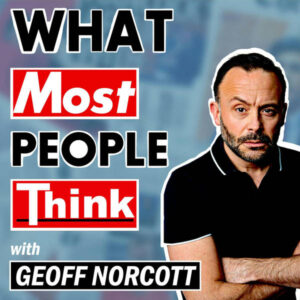In a world where public figures are often subjected to relentless scrutiny, James Haskell, former rugby star and close friend of Prince Harry, has come forward to defend the Duke of Sussex amid the storm surrounding his memoir, “Spare.”
Haskell’s remarks shine a light on the importance of understanding and empathy in a society quick to judge.
Haskell argues that Harry’s memoir offers a rare and candid glimpse into the complexities of royal life.
He believes that the book allows readers to appreciate the challenges Harry has faced, which are often overshadowed by sensationalized media narratives.
Haskell emphasizes that while opinions abound, it’s crucial to consider the context of Harry’s experiences.
The former athlete noted that Harry is on a personal journey, one that involves taking ownership of his narrative.
In a climate rife with conflicting stories, Haskell advocates for the necessity of establishing one’s truth.
“You’ve got to put a tent pole in the ground,” he states, highlighting the importance of standing firm in one’s beliefs amidst chaos.
Reflecting on their friendship, Haskell shared that he and Harry have exchanged parenting tips, underscoring the bond they share as fathers.
This connection adds a layer of relatability to Harry’s story, as both men navigate the trials of parenthood under the public eye.
Haskell’s support for Harry is unwavering, even in the face of harsh criticism.
Many detractors have questioned Harry’s decision to share intimate details about his life, but Haskell sees it differently.
He praises Harry for his authenticity, asserting that his openness about personal struggles is both brave and necessary.
“We shouldn’t judge him for revealing these aspects of his life,” Haskell insists, urging the public to foster understanding instead.
As the media frenzy continues, Haskell calls for a more compassionate approach to reporting on Harry and Meghan.
He critiques the relentless obsession with the royal couple, suggesting that the focus should shift from sensationalism to responsible journalism.
“The media needs to lay off and give the man a break,” he pleads, recognizing the toll such scrutiny can take.
Haskell’s perspective is particularly poignant given his own experiences in the spotlight.
He recognizes the emotional strain that comes with being a public figure and believes that Harry deserves the chance to share his story without fear of backlash.
“He’s been through so much,” Haskell says, reinforcing the idea that everyone should have the right to express their truth.
Moreover, Haskell champions Harry’s efforts to destigmatize discussions around mental health.
By sharing his vulnerabilities, Harry not only sheds light on his own battles but also encourages others to seek help.
Haskell sees this as a vital step toward fostering a society that prioritizes mental well-being and compassion.
While tensions within the royal family may be high, Haskell remains hopeful for reconciliation.
He understands the complexities of familial relationships and believes that open communication is essential for healing.
His loyalty to Harry serves as a reminder of the power of friendship, especially during tumultuous times.
In a climate where judgment often overshadows understanding, Haskell’s message resonates deeply.
He advocates for a dialogue that embraces empathy and compassion, challenging the prevailing narratives that surround public figures.
It’s a call to recognize their humanity, beyond the headlines and controversies.
As the conversation around Prince Harry’s memoir unfolds, Haskell stands as a steadfast ally, reminding us all that true support comes from those who understand our journeys.
His defense of Harry is not just about one man’s story; it’s about fostering a culture of kindness and respect in a world that often forgets to listen.
